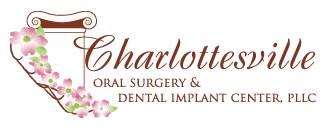28 Jun Teeth Grinding: It’s more than just a bad habit; it’s a dental concern
Chronic bruxism, or teeth grinding, is a perplexing condition that affects millions of adults. It happens so easily (usually during sleep) and occurs so frequently that it is often mistaken for an annoying, but normal, habit. Even when patients wake up with a headache and sore teeth due to a night of particularly intense grinding, the condition is often ignored until the symptoms become unbearable.
Teeth grinding is more than just a bad habit, though, it can be a growing dental concern that warrants a serious discussion with your dentist. Bruxism can certainly contribute to chronic pain, but also damaged teeth, joint damage, muscle spasms, and lock jaw. Through your discussion with your dentist, careful observation of your symptoms, and special diagnostics, a treatment strategy can be designed for you.
Initially, your treatment options may consist of mild, conservative therapies that can address painful muscle spasms and joint discomfort. This can often be accomplished with the help of common medications and a conscious effort to allow the joint and muscles to rest.
For more moderate symptoms, physical therapy techniques can be used to reprogram the joint and muscles, as well as prevent the teeth from excessive wear. An orthotic appliance, a temporary bite splint, or a custom night guard all serve slightly different functions in order to most accurately resolve your particular concerns.
When clenching or grinding has permanently impacted the health of your jaws, muscles, cartilage, and teeth, the condition is known as TMJ disorder. Advanced TMJ disorders can affect the way that your teeth come together, prompting the need for bite correction and oral surgery. The surgical approach can consist of orthodontic treatment, joint reconstruction, and even jaw repositioning. For most patients, jaw surgery is only recommended for severe joint dislocation, lock jaw, joint deterioration, or when all other treatment options have been explored.
Don’t ignore your TMJ symptoms. Talk to our team at Charlottesville Oral Surgery and Dental Implant Center about your nonsurgical and surgical options for TMJ disorder. Call 434-295-0911 for more information.
